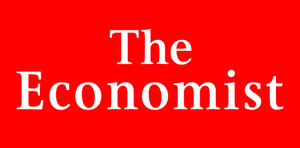
LONDON, Nov. 10, 2025 /PRNewswire/ -- The Economist has launched The World Ahead, the annual special year-end issue from The Economist that examines important themes, trends and events that will shape the coming year. The World Ahead 2026 is the 40th edition of The Economist's future-gazing annual, marking four decades of publishing success. The editor's top ten themes for 2026 and the accompanying articles are online today on https://www.economist.com/worldahead2026. This year The World Ahead will be included in The Economist's weekly print edition dated November 15th, as well as being sold as a stand-alone newsstand edition.
Commenting on this year's edition of The World Ahead, its editor, Tom Standage said, "2026 will be a year of uncertainty, as Donald Trump's reshaping of long-standing norms in geopolitics, diplomacy and trade continues to cause worldwide repercussions—and keeps the president in the global spotlight. But it also promises to be a year that tells us about where the world is heading. Will the trade war cause an economic slowdown? Will AI produce a boom, a bust or a backlash? Will Mr Trump's unconventional approach to diplomacy bring lasting change to the Middle East? Will the bond markets call time on rich countries that are living beyond their means? The answers to these questions will determine how global affairs unfold over the next few years. The World Ahead 2026 provides our analysis of these and other trends, and the challenges and opportunities they present to countries, companies and citizens in the coming year."
In its 40th year, The World Ahead edition discusses a broad range of topics, but its top ten themes for 2026 are as follows:
1. America's 250th. Expect to hear wildly diverging accounts of America's past, present and future, as Republicans and Democrats describe the same country in irreconcilably different terms to mark the 250th anniversary of its founding.
2. Geopolitical drift.Foreign-policy analysts are divided: is the world in a new cold war, between blocs led by America and China, or will a Trumpian deal divide the planet into American, Russian and Chinese "spheres of influence", in which each can do as they please? Don't count on either.
3. War or peace? Yes.With luck, the fragile peace in Gaza will hold. But conflicts will grind on in Ukraine, Sudan and Myanmar. Russia and China will test America's commitment to its allies with "grey zone" provocations in northern Europe and the South China Sea. As the line between war and peace becomes ever more blurred, tensions will rise in the Arctic, in orbit, on the sea floor and in cyberspace.
4. Problems for Europe. All this poses a particular test for Europe. It must increase defence spending, keep America on side, boost economic growth and deal with huge deficits, even though austerity risks stoking support for hard-right parties. It also wants to remain a leading advocate for free trade and greenery. It cannot do all of these at once.
5. China's opportunity. China has its own problems, with deflation, slowing growth and an industrial glut, but Mr Trump's "America First" policy opens up new opportunities for China to boost its global influence.
6. Economic worries.So far America's economy is proving more resilient than many expected to Mr Trump's tariffs, but they will dampen global growth. And with rich countries living beyond their means, the risk of a bond-market crisis is growing.
7. Concerns over AI.Rampant spending on infrastructure for artificial intelligence may also be concealing economic weakness in America. Will the bubble burst?
8. A mixed climate picture.Limiting warming to 1.5°C is off the table, and Mr Trump hates renewables. But global emissions have probably peaked, clean tech is booming across the global south and firms will meet or exceed their climate targets—but will keep quiet about it to avoid Mr Trump's ire. Geothermal energy is worth watching.
9. Sporting values. Sport can usually be relied upon to provide a break from politics—but maybe not in 2026. The football World Cup is being jointly hosted by America, Canada and Mexico, whose relations are strained. Fans may stay away. The Enhanced Games, in Las Vegas, may be even more controversial: athletes can use perf ormance-enhancing drugs. Is it cheating—or just different?
10. Ozempic, but better. Better, cheaper GLP-1 weight loss drugs are coming, and in pill form, too. That will expand access. But is taking them cheating, too?
This year's edition includes a special section, "Mapping 2026", which considers the intriguing significance of geography in a range of global themes, explaining each one using a map. It also features predictions from the "superforecasting" team at Good Judgment and an interactive graphic on conflicts to watch around the world.
As in previous years, The Economist's journalists are joined in The World Ahead 2026 by leaders from politics, business and science, who add their ideas and predictions for 2026 in "By Invitation" guest articles: Kaja Kallas, head of foreign affairs and security, European Commission; Mark Carney, prime minister of Canada; Nandan Nilekani, co-founder and chairman, Infosys; Jack Goldsmith and Robert Bauer, former US government lawyers; Richard White, emeritus professor of American history, Stanford University; Kristalina Georgieva, managing director, IMF; and Heidi Larson, vaccine anthropologist at the London School of Hygiene & Tropical Medicine.
About The Economist
With rigorous reporting, in-depth analysis and global perspective, The Economist explains today's most important events and seeks to discern the trends that will shape the future. In addition to the weekly print edition, The Economist publishes its journalism daily through its website, app, podcasts, newsletters, videos and Espresso, an app for concise global news. The Economist has 1.2m subscribers. More than 60m people follow The Economist across X (formerly Twitter), Facebook, Instagram, YouTube, LinkedIn, TikTok and Threads.
SOURCE The Economist








Share this article